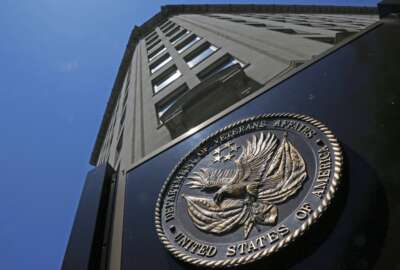State Dept, USAID psychiatrists spread thin as demand for mental health services overseas rises
In today's Federal Newscast: Federal employees’ demand for mental health services overseas is rising, but help for them is spread thin. HHS surpasses targets for...
- The Cybersecurity and Infrastructure Security Agency is pushing back on a proposed budget cut. The House’s fiscal year 2024 homeland security spending bill would cut CISA’s proposed budget by 25%. CISA Executive Assistant Director Eric Goldstein said that would be catastrophic for CISA’s efforts to defend federal networks. “We would not be able to sustain that visibility with that significant of a budget cut, and our adversaries would unequivocally exploit those gaps," he said. Goldstein told the House Homeland Security Committee’s cybersecurity subcommittee that the cut would affect programs like Continuous Diagnostics and Mitigation and other shared cyber services. Congress has until November 17, when the continuing resolution expires, to work out a fiscal 2024 spending agreement. (CISA hails progress on cyber risk visibility, but lawmakers eye expanded shared services - Federal News Network)
- The Department of Veterans Affairs supports parts of a bipartisan bill to refine its process for firing employees. The VA said it has the tools it needs to remove employees accused of misconduct or poor performance. But the department supports provisions in the LEAD Act. The bill would standardize how VA builds a case against employees facing disciplinary action and train the entire VA workforce on the ins and outs of the process. Tracey Therit, VA’s chief human capital officer, said the bill would standardize how the VA handles disciplinary measures. “There's still inconsistency in how actions are executed in the field; we know that things still take too long," Therit said.(VA, AFGE support parts of bipartisan bill to refine how agency fires poor performers - Federal News Network)
- Bid protests spiked in fiscal 2022, as vendors submitted more than 2,000 bid protests to the Government Accountability Office in fiscal 2023, a 22% increase over 2021. Of those more than 2,000 protests, 368 were from task or delivery order contracts. GAO's annual bid protest report to Congress said this is the first increase after five straight years of fewer complaints filed with the agency. The report also showed a sustain rate of 31%, meaning vendors win almost one in three protests that GAO decided. Typically, the sustain rate is between 13% and 15%.(Bid protest report to Congress for fiscal 2023 - GAO.gov)
- One agency is surpassing targets for hiring military spouses. The Department of Health and Human Services has majorly increased its recruitment of military spouses in just the last year. A special hiring authority lets agencies appoint military spouses to certain federal jobs and forgo the traditional hiring process. Even with that authority, some agencies are still struggling to hire more military spouses. But for HHS, a hiring event specifically targeting that group was the key driver to bringing more candidates in the door. HHS Chief Human Capital Officer Bob Leavitt shared the results."We've increased the hiring of military spouses by 36% in our department. We've hired plenty of military spouses within my own office itself," Leavitt said. Military spouses often lean toward remote job opportunities, which accommodate their highly mobile lifestyle as part of active-duty military families.(Department of Health and Human Services military - Transforming the federal workforce event)
- Personnel spending and bigger bills for operation and maintenance are going to keep eating up bigger and bigger shares of DoD’s budget, according to the Congressional Budget Office. CBO’s latest projections predict the cost of funding the military services will be more than $900 billion a year by 2038. That long-term forecast is based on DoD’s current policies and how much more expensive they will be if nothing changes. CBO thinks the Pentagon’s costs will rise about 10% above what officials are already expecting between 2028 and 2038 — but about 70% of those increases will come from personnel and maintenance expenses.(Long-term personnel, maintenance costs mean bigger expenses for DoD, CBO says - Congressional Budget Office)
- Federal employees’ demand for mental health services overseas is rising. But psychiatrists employed by the State Department and U.S. Agency for International Development said they are already spread thin. Many of these mental health experts cover more than a dozen posts overseas. They told the Government Accountability Office they are challenged by a lack of electronic health records and a lack of local mental health services. GAO found overseas demand for psychiatrists has increased since the COVID-19 pandemic and the war in Ukraine.
- Ahead of Open Season, federal employees can now start taking a look at the different health care options that are out there. An online plan comparison tool for the Federal Employees Health Benefits program is now updated with data for 2024. The feature on the Office of Personnel Management's website lets feds weigh the cost and benefits of their current health enrollments against other options available through FEHB. This year's Open Season, when feds can make changes to their health care options, runs from Nov. 13 to Dec. 11.(FEHB plan comparison tool - Office of Personnel Management)
- The Defense Department's new campaign plan to prevent suicides by military personnel is trying to stem the tide. A new DoD report found suicide rates of service members increased by 3% in 2022 over 2021 and have been gradually increasing since 2011. The campaign plan has five lines of effort and associated tasks to strengthen the department's suicide prevention strategy, including more than 100 actions directed by the secretary to help prevent suicide among members of the Armed Forces. On the positive side, DoD reports that suicides by Reserve and National Guard members decreased by 12% and 18%, respectively, last year.(DoD offers numerous suicide prevention resources - Defense Department)
- Customs and Border Protection is laying the groundwork for a major IT contract. In a request for information this week, CBP detailed potential plans for a single-award, five-year blanket purchase agreement for “application development and operation and maintenance.” The agency said it needs ongoing support and development for IT applications and systems used by the Cargo Systems Program Directorate. CBP said those systems have a major backlog of security vulnerabilities. The directorate manages thousands of application deployments every year. Responses to the RFI are due by October 30.
Copyright © 2025 Federal News Network. All rights reserved. This website is not intended for users located within the European Economic Area.
Peter Musurlian
Peter Musurlian is a producer at Federal News Network.
Follow @PMusurlianWFED






